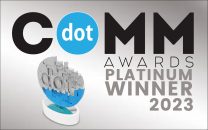The dictionary answer to “what is a marketing campaign” is: “an organized course of action to promote and sell a product or service, or to achieve a goal.” Let’s break that down into more understandable parts.
- Organized: there is a clear plan for why, what, to whom, how long and how your campaign will run!
- Course of Action: steps are prepared ahead of time to ensure the working plan gets done, who is involved in it and who is in charge of each step.
- To Promote: raise awareness of your brand, your product and/or service or a combination of products and services.
- To Sell: motivate and entice new people to buy your product or service.
- Achieve a goal: besides sales, what else does your company want to achieve?
This simple definition leads to more questions than it answers and widely opens the door for a marketing campaign to involve a huge range of variables in products and services, marketing media, target audiences, budgets, brand messaging and potential results. Since your business knows its products and services, brand message, target audience and budget, this article will focus on the various marketing media and how to measure success of marketing campaigns.
Types of Marketing Campaigns
Although there are many different types of marketing campaigns, the most common ones are:
Brand Awareness
It is common for a business to use a marketing campaign when they want to raise brand awareness with a certain target audience or with the general population. Brand awareness marketing campaigns for big companies are often ongoing as a way to keep their brand in front of mind and maintain market position.
Product Launch
Campaigns intended to launch a new product often involve multiple communication strategies, distribution channels, special offers, buy now discounts and other promotional strategies all working together to produce the results desired.
Brand Launch
The way a brand launch differs from a product launch is that it often includes several products and services. All of the marketing for a brand launch focuses on the brand identity and what the brand promises its clients. Whatever communications, relationship building and/or promotional strategy businesses use in these types of marketing campaigns, they focus their efforts on promoting the brand over the products or services.
Rebranding
Sometimes a brand has become tired or invisible and a business needs to rebrand themselves for a new generation. Whatever the reasons for a company to rebrand itself, committing to a rebranding campaign is very akin to a brand launch with the central goal being to present and communicate a fresh and exciting brand identity and a new promise to its clients and the world.
Turnaround/Relaunch
Sometimes a company gets hurt by reputational issues from hackers, poor customer service or poor customer satisfaction ratings from search engines. When this happens a turnaround or relaunch can be a way to reboot and turn the tide. A turnaround marketing campaign is one that relaunches your brand with a new and improved promise to your customer base.
Seasonal Push
Most business products and services have a peak season during the year. A seasonal push marketing campaign is used to maximize brand exposure, sales and revenue during the peak season.
Examples of a Marketing Campaign
The best marketing campaigns are the ones that are not just successful in boosting sales and raising revenues but the campaigns that continue to be successful for years and even decades. The following are great examples of a marketing campaign for each of the 6 most common types of marketing campaigns.
Brand Awareness
Apple, Nike and Coke are among the very best brand marketers. Over the course of numerous decades they have all stayed true to their brand and have been extraordinarily successful because of their effectiveness at promoting brand awareness.
Product Launch
Product launch campaigns may take the form of targeting email lists with a special offer on a new product or service, doing an infomercial or, like Taco Bell and Jack in the Box do so often on TV, launching a series of commercials to promote their newest taco or burger. In the case of both of those fast food chains they stay with their brand and use the “dong” sound effect or “Jack” to maintain brand identity cohesion.
Brand Launch
The Mazda Motor Company launched the “Vroom, Vroom” marketing campaign years ago with the intent of branding its line of automobiles as extra powerful and fun to drive. Most of the time, Japanese auto companies are known for their quality engineering, reliability and fuel economy, but Mazda focused its brand launch to promote its cars as packing some extra punch.
Rebranding
Both Puma and Adidas have successfully rebranded themselves for new generations of customers. They made some updates to their logos, expanded their lines, maintained some of their original products and promoted new technologies and designs for their products. As a result both companies have revitalized their brand and sales immensely.
Turnaround/Relaunch
After Volkswagen was badly hurt by revelations that they had cheated on the emissions tests of their diesel vehicles, they needed a turnaround to help them rebuild trust and get their customers back. Their CMO, Jochen Sengpiehl, expressed their turnaround strategy this way, “As a general principle, the aim in future will not be to show a perfect advertising world. In our presentation, we want to become more human and more lively, to adopt the customer’s perspective to a greater extent and to tell authentic stories.” They launched a new logo and a brand redesign as a part of this turnaround/relaunch strategy.
Seasonal Push
How many different major companies can you name who make a special effort to push their brand during the winter holiday season? Lexus with the big red bows, Coke with the cute polar bear family, Budweiser with their Clydesdale horses or non-profit organizations making the push for end of the year donations – all of these are seasonal push marketing campaigns that carry over a theme year to year with new creative advertising to raise their revenues.
Although most of the above mentioned fall into the category of best marketing campaigns, a review of Super Bowl TV ads from the last several decades would reveal that big, costly marketing campaigns don’t always pan out for companies. How do we know whether campaigns are successful at getting what they want? How is success measured in a marketing campaign?
How to Measure the Success of a Marketing Campaign
Before beginning to select what metrics you want to measure, and before you collect the data necessary for measuring success with those metrics, your business needs to determine what success looks like. Do you want to raise brand awareness, generate big short-term sales growth or build sales at a manageable and sustained rate for the next year? What revenue goals need to be met? It is important not to be vague in your goal setting – so take some time to strategize and assign workable numbers to goals.
Getting a really good idea of what success will look like includes avoiding becoming enamored with marketing vanity metrics. Marketers will likely emphasize that your “web traffic saw a 24% increase” or “you added 150 new followers” and these could sound really great, but as indicators they do not accurately measure sales and brand performance. Instead, focus on the following consumer-centric metrics as your starting point:
- Sales growth – measures how your sales trajectory is trending, which helps you get an estimate of your campaigns net ROI.
- ROMI – When you subtract your marketing investment from your total revenue and then divide that number by your marketing investment cost again and multiply by 100 you will get your percentage return on marketing investment – referred to as MROI. This is an excellent measurement of overall campaign success. This number can also be calculated ahead of a campaign to suggest the marketing budget for a successful campaign.
- Repeat purchase rate – This metric provides indications about your customer loyalty and may also be used to forecast sales.
- Customer lifetime value – This metric determines how much each customer will spend over the course of their relationship with your brand.
- Funnel velocity – This is a measure of how quickly your customers move through your sales funnel. Increases in funnel velocity mean that your business needs fewer touchpoints to turn a prospect into a sale.
- Churn rate – This metric provides your business with data on when and why people leave your sales funnel. When used regularly in marketing campaigns, it also provides insight into whether specific activities are leading to or reducing customer churn.
Any combination of these business centered metrics will help you determine how to measure the success of a marketing campaign.
Conclusion
The best marketing campaigns are, of course, the ones that produce the greatest results as far as overall sales growth and ROI for your business. Still, the importance of brand awareness and other indicators will factor into the long term success of your business as well. This means that when you are looking to launch a marketing campaign for a new product or service, to a new target audience, to rebrand your business, or for any other reason; you want to work with a marketing agency that will produce your desired results (or exceed them) and monitor the results of your campaign while highlighting your brand in the process.
When it comes to providing the very best marketing campaigns for clients, zö agency will always have your back! Our decades of experience in full-service marketing with small to mid-sized businesses has taught us a great deal about running successful marketing campaigns and providing the follow-up analytics for any campaign we design and run. So check us out today at zö.agency and let us make your next marketing campaign a smashing success!




























